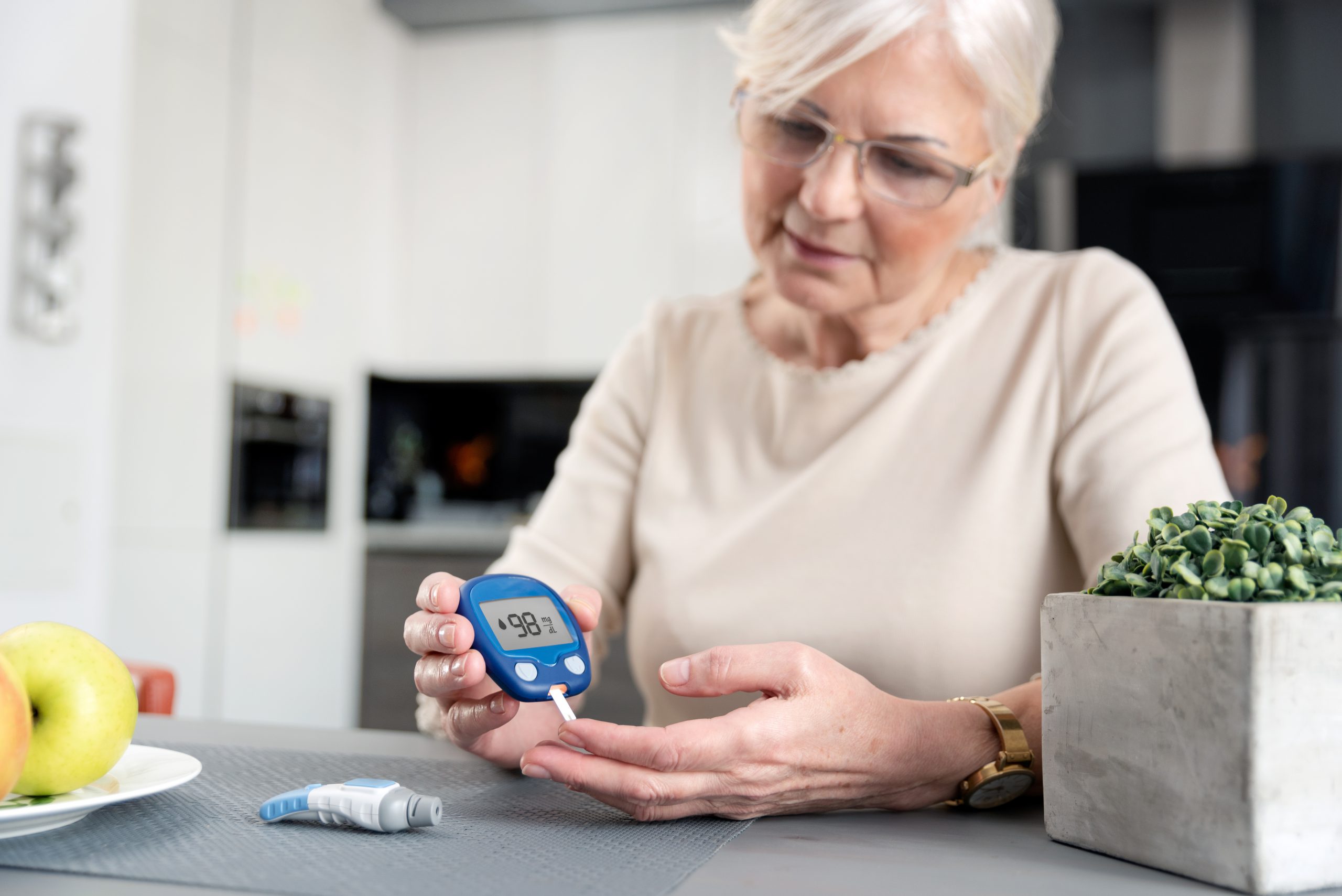Did you know that 30.3 million people in the United States have been diagnosed with diabetes according to the National Institute of Diabetes and Digestive and Kidney Diseases (NIH)? It’s true, and since November is National Diabetes Month, we are spreading awareness on how to reduce your risk of developing diabetes.
In this article, we will discuss type 1 and 2 diabetes, associated risk factors, symptoms to watch out for, and healthy habits to reduce the risk of developing diabetes.
Risk Factors for Type 1 Diabetes
According to the MayoClinic type 1 diabetes primarily affects children. Some of the risk factors that can contribute to the development of the condition are as follows:
- Family History
- Genetics
- Geography
- Age
These risk factors can contribute to a higher risk of type 1 diabetes developing. There is no guarantee that diabetes will develop as a result of these risks; rather, it is merely a fact worth considering.
Patients who have a family history of type 1 diabetes should speak with their provider for further evaluation. The same is true of patients who may be at risk of developing type 2 diabetes.
Risk Factors for Type 2 Diabetes
According to EverydayHealth the most common type of diabetes is type 2 which makes up 95% of cases.
This mishandling of the blood sugar can lead to further health complications, like disorders impacting the nervous system, immune system, and circulatory system. Some of the risk factors that can contribute to this condition are as follows:
- Weight
- Family History
- Inactivity
- Prediabetes
People who have these risk factors should consult with their doctor to determine their personal risk of developing diabetes.
These risk factors, just like those for type 1 diabetes, do not guarantee a diagnosis of diabetes. But patients who are aware of these risk factors can seek an appointment with a doctor especially if symptoms are present.
Symptoms of Diabetes
The American Diabetes Association has a simple resource to illustrate diabetic symptoms, and thankfully, symptoms for both types of diabetes are similar. If patients experience symptoms and also exhibit one or more risk factors, then further testing may be required.
- Urinating often
- Feeling very thirsty
- Feeling very hungry—even while eating
- Extreme fatigue
- Blurry vision
- Cuts/bruises that are slow to heal
- Weight loss—even though you are eating more (type 1)
- Tingling, pain, or numbness in the hands/feet (type 2)
While these symptoms are the same for both types, the distinction is that those with type 1 diabetes often experience symptoms very suddenly. On the other hand, patients who have type 2 diabetes will see symptoms appear over time.
If any symptoms do appear in a person with a family history of diabetes, it is advised for such patients to visit their provider. After a consultation with a doctor will order blood tests to confirm the diagnosis of diabetes. The CDC recommends a few tests that check levels related to diabetes: glucose tolerance, blood sugar, and fasting blood sugar.
If the results indicate diabetes, then a treatment plan can be created in tandem with the adoption of some healthy habits to help manage diabetes.
Healthy Habits
Regardless of a diabetes diagnosis, anyone can make healthy choices to combat the development of this health condition.
VeryWellHealth offers several ways to help those both with diabetes, but also to help reduce the risk of diabetes being developed.
- Eat More Plants: Diets with more vegetables and whole grains have been associated with a lower risk of insulin resistance. Another great food to eat to fight against diabetes are those that are rich in fiber. Fiber can help reduce cholesterol, promote feelings of fullness, and help with blood sugar.
- Take Work Breaks: Sedentary behavior can lead to health complications, including diabetes. This is why it is important to take short breaks throughout the workday.
- Exercise: Exercise helps with blood sugar management and overall health. There are many different ways to be active while having fun. Exercise can be anything that involves moving the body for a 30-minute block of time throughout the day.
These habits can be performed daily and if performed consistently, patients can expect improvements in their general health and quality of life. People with diabetes can live a fulfilling life and be part of the diabetes community with great resources like the Association of Diabetes Care & Education Specialists.
Until health professionals can find a way to cure diabetes, there is no way to prevent diabetes completely. But what we can do is educate patients about their health, help raise awareness, so that one’s lifestyle choices don’t increase the chances of developing certain types of diabetes.
How We Can Help?
MCR Health offers both diabetes treatment and education services that focus on educating patients. With the help of our team, patients can get quality diabetes care and diabetes management!
There is no better time to take control of your diabetes and spread awareness than now! So take that first step today with help from MCR Health. If you would like to learn more about protecting your health, please contact us to schedule an appointment.

